


QUICK LINKS
Grants for Young Researchers
Publications
Congresses
Jobs and Studentships
Elections
Soil Conservation Projects
NEWS
Scientific and Cultural Days of Imola – 17th year, Italy
Global Soil Conference 2024, New Delhi, India
GM5.5 Geodiversity and geoheritage, Vienna, Austria
5th International Conference SCSI, India
5th WASWAC World Conference, Olomouc, Czech Republic – added link
Centennial of the IUSS, Florence, Italy
SHORT BIOGRAPHIES OF THE NEW ESSC EXECUTIVE COMMITTEE
PRESIDENT: Carmelo Dazzi, Palermo, Italy
 Carmelo received his “laurea summa cum laude” from the University of Palermo (Italy). He is Professor of Pedology at the University of Palermo and Honorary Professor at the Universidad Nacional de San Agustin de Arequipa, Peru. Carmelo’s research activities are mainly concerned with soil survey and land evaluation; soil and saline water relationships; soil degradation and desertification; anthropogenic soils and pedodiversity; soil features and human health. He is a referee for 11 journals and has published over 200 papers (in scientific journals, as book chapters, as proceedings of national and international congresses and as editor). Carmelo has supervised and has been the Examiner of several Ph.D. theses (in Italy and abroad). He is appointed as an expert for several projects. These include the evaluation of Strategic Projects, University of Bologna; the evaluation of PRIN Projects, Italian Ministry of Universities; and the evaluation of projects in the ‘Rita Levi Montalcini’ Young Researchers Project. Carmelo is a member of the ‘Panel for Soil Quality,’ the Italian Ministry of Agriculture and the Committee of International Referees of the ATLAS Project (Atlas of Soil Quality Indicators, of the Italian Ministry of Agriculture). Carmelo is also the Vice-President of the Italian Society of Soil Science.
Carmelo received his “laurea summa cum laude” from the University of Palermo (Italy). He is Professor of Pedology at the University of Palermo and Honorary Professor at the Universidad Nacional de San Agustin de Arequipa, Peru. Carmelo’s research activities are mainly concerned with soil survey and land evaluation; soil and saline water relationships; soil degradation and desertification; anthropogenic soils and pedodiversity; soil features and human health. He is a referee for 11 journals and has published over 200 papers (in scientific journals, as book chapters, as proceedings of national and international congresses and as editor). Carmelo has supervised and has been the Examiner of several Ph.D. theses (in Italy and abroad). He is appointed as an expert for several projects. These include the evaluation of Strategic Projects, University of Bologna; the evaluation of PRIN Projects, Italian Ministry of Universities; and the evaluation of projects in the ‘Rita Levi Montalcini’ Young Researchers Project. Carmelo is a member of the ‘Panel for Soil Quality,’ the Italian Ministry of Agriculture and the Committee of International Referees of the ATLAS Project (Atlas of Soil Quality Indicators, of the Italian Ministry of Agriculture). Carmelo is also the Vice-President of the Italian Society of Soil Science.
IMMEDIATE PAST PRESIDENT: José L. Rubio, Valencia, Spain
Dr José L. Rubio was one of the founders of the ESSC and its President from 1998–2011. He is also the founder and first Director of the Desertification Research Centre-CIDE (CSIC, Universitat de Valencia, Generalitat Valenciana). Currently, he is Vice-Chair of the European Soil Bureau Network (ESBN, JRC, EU).
José was Scientific Adviser of the Spanish Delegation during the development of the UN Convention to Combat Desertification. He has over 30 years experience in soil science and related themes. These include desertification, soil indicators, integrated soil cartography, soil erosion, soil and water conservation, effects of forest fires, Mediterranean landscapes and climate change impacts on the land. José has participated in 23 Spanish and European research and development projects, of which he was Project leader in 11. He is author or co-author of 31 books and over 100 scientific articles. José has also been a co-organizer and Director of numerous international meetings on soil science and desertification.
José is the Head of the Department of Soil Degradation and Soil Conservation at CIDE. The main objective and activities of the Department are the study and control of desertification processes in Mediterranean environments. This embraces knowledge of degradation processes at different scales. Current research includes soil erosion, the impact of climate change, degradation chemistry, physics, hydrology, loss of fertility and soil pollutants, the impact of forest fires, development of new methodologies, the operation of models and their application to spatial representation, sustainable soil use through the development of assessment methodologies and environmental impact assessment, recommendations for land use, development of planning alternatives and applying new technologies to study, monitor and combat desertification. The Department also conducts training and academic and advisory work at regional, national and international levels. This includes participation in the development and monitoring of the UNCCD and scientific advice to international organisations, including the EU, NATO, OSCE, OECDE, FAO and EP. José is directly involved in the conceptual development of soil security in the context of environmental security in association with NATO, OSCE, UNCCD and other bodies.
At present José he is very much involved in the development of the EU Strategy of Soil Protection and the on-going Soil Framework Directive. He also participates in the development of a global protocol for the sustainable use of soil resources (Global Soil Partnership, FAO), with the objective of creating a world soil mechanism to assist UN bodies and conventions.
José maintains and develops intense activity on science-environment communications through a weekly opinion column in the ‘El Mundo’ newspaper, frequent participation on TV and radio programmes, participation in films on climate change impacts and desertification, publications in popular scientific media and advising NGOs.
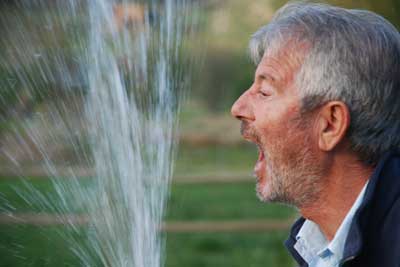
José celebrates one of his many achievements!
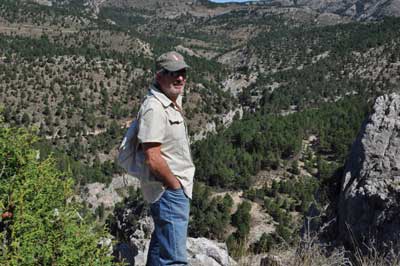
José in relaxed mode in the Sierra de Gudar (Teruel, Spain).
VICE-PRESIDENT: Ádam Kertész, Budapest, Hungary
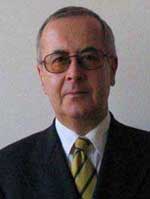 Ádám received the degree of M.Sc. in Geography and Mathematics from Eötvös Loránd University (Budapest, Hungary) in 1972. In 1986, he qualified as a soil scientist/engineer at the University of Agricultural Sciences (Gödöllö, Hungary). He was awarded the degree of Ph.D. in Geography (1986), the degree of Doctor of Science in Geography (1993) and the degree of Doctor Habilitatus (1996). Currently he is the Head of the Department of Physical Geography at the Geographical Research Institute of the Hungarian Academy of Sciences in Budapest. Ádám is also Professor of Physical Geography at Eötvös Loránd University (Budapest, Hungary) and at Eszterházy Károly Fiskola (Eger, Hungary).
Ádám received the degree of M.Sc. in Geography and Mathematics from Eötvös Loránd University (Budapest, Hungary) in 1972. In 1986, he qualified as a soil scientist/engineer at the University of Agricultural Sciences (Gödöllö, Hungary). He was awarded the degree of Ph.D. in Geography (1986), the degree of Doctor of Science in Geography (1993) and the degree of Doctor Habilitatus (1996). Currently he is the Head of the Department of Physical Geography at the Geographical Research Institute of the Hungarian Academy of Sciences in Budapest. Ádám is also Professor of Physical Geography at Eötvös Loránd University (Budapest, Hungary) and at Eszterházy Károly Fiskola (Eger, Hungary).
Ádám’s research activities mainly involve soil erosion and conservation, research on agricultural pollution, pure and applied research into geoecological systems, land degradation and desertification in semi-arid and sub-humid environments, land capability analysis and climate change studies. He has published mainly in the field of Physical Geography and Soil Science (as of May 2011, he has authored four books, 52 refereed papers, 57 conference papers and 151 further publications in scientific journals). Ádám is a member of the Editorial Board of the journals ‘Acta Universitatis Carolinae Environmentalica’ and the ‘Hungarian Geographical Bulletin.’ Ádám has supervised 6 Ph.D. theses and been Examiner for 9 Ph.D. theses. He has received research grants from many bodies, principally the European Union. Ádám is also a member of the Geographical Scientific Committee of the Hungarian Academy of Sciences and was the President of the Hungarian National Committee of the International Geographical Union between 1989–2009.
Further information is available at: http://www.mtafki.hu/termf/kertesz_en.html
VICE-PRESIDENT: Peter Strauss, Petzenkirchen, Austria
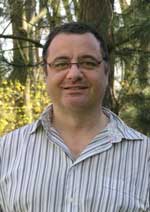 Peter studied Agriculture at the University of Natural Resources and Life Sciences in Vienna, Austria. At the same University he completed his Doctoral thesis on ‘Diffuse pollution in the watershed of the River Kamp.’ Presently Peter is Head of the Institute for Land and Water Management Research within the Austrian Federal Agency for Water Management. He is also a Lecturer at the University for Natural Resources and Life Sciences. Peter’s main research interests are in soil erosion, watershed hydrology and watershed management, in particular in relation to diffuse pollution processes. He is Associate Editor of the ‘Journal for Soil and Water Conservation’ and a referee for many scientific journals. To date, Peter has authored or co-authored 30 papers in peer reviewed journals and about 100 papers in other media.
Peter studied Agriculture at the University of Natural Resources and Life Sciences in Vienna, Austria. At the same University he completed his Doctoral thesis on ‘Diffuse pollution in the watershed of the River Kamp.’ Presently Peter is Head of the Institute for Land and Water Management Research within the Austrian Federal Agency for Water Management. He is also a Lecturer at the University for Natural Resources and Life Sciences. Peter’s main research interests are in soil erosion, watershed hydrology and watershed management, in particular in relation to diffuse pollution processes. He is Associate Editor of the ‘Journal for Soil and Water Conservation’ and a referee for many scientific journals. To date, Peter has authored or co-authored 30 papers in peer reviewed journals and about 100 papers in other media.
VICE-PRESIDENT (and Newsletter Editor-in-Chief): Mike Fullen, Wolverhampton, U.K.
Mike received the degrees of B.Sc. and M.Sc. from The University of Hull (UK) and a Ph.D. from the UK Council for National Academic Awards (CNAA) in 1985. Currently, he is Professor of Soil Technology at the University of Wolverhampton. His research activities are mainly concerned with soil erosion, soil conservation, desertification and desert reclamation and his fieldwork is mainly based in Europe and Asia. He has published widely in soil science (as of May 2012, he has authored one book, 188 refereed papers, 199 conference papers and 25 consultancy reports). He is a referee for 39 journals and a member of 15 Editorial Boards. These include the journals ‘Geomorphology,’ ‘The World Association of Soil and Water Conservation’ (WASWAC), ‘The African Journal of Agricultural Research,’ ‘The Lithuanian Journal of Science (Agricultural Sciences),’ ‘The Open Journal of Geology,’ ‘The Geographical Research Bulletin (Hungarian Academy of Sciences),’ ‘Sociedade & Natureza’ (Brazil), ‘Applied and Environmental Soil Science,’ ‘The Spanish Journal of Soil Science’ and ‘Pedosphere.’ Mike has jointly supervised 22 Ph.D. theses to completion and been Examiner for 22 Ph.D. theses. He has received research grants from over 29 institutions, principally the European Union. He is also Vice-President and UK Representative on the Council of the European Society for Soil Conservation (ESSC) and Editor-in-Chief of the ESSC Newsletter. Mike is also WASWAC Vice-President, Councillor and Representative for the United Kingdom and an Academician of the Lithuanian Academy of Sciences. Further information is available at: Profile
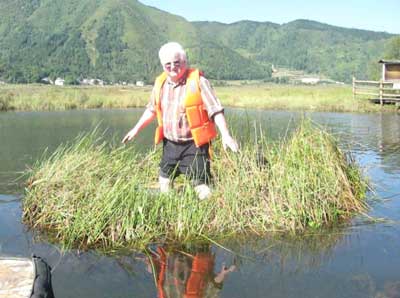
Mike ‘walking on water’ on Tongching Lake, Yunnan Province, China.
SECRETARY: Edoardo Costantini, Florence, Italy
 Formation and research stages: Edoardo received his Doctoral degree in Agricultural Sciences in 1979 from the Institute of Geopedology and Applied Geology in Florence. The thesis was acknowledged ‘with honours and publishing dignity.’ Research activities included appointments at the Physical Geography Faculty of the University of Zaragoza (Spain) (1997); the US National Resources Conservation Service (1999) and the Geology and Geoenvironment Department of the University of Athens (2010–2011). Career: Edoardo was a Researcher of the Experimental Institute of Agronomy of Modena (1981–1985); a Researcher of the Experimental Institute for Soil Study and Conservation of Florence (1985–1999); Professor of Pedology and Geopedology of the Department of Earth Sciences of the University of Siena (1999–2008) and First Researcher of the CRA-ABP Research Centre on Agrobiology and Pedology of Florence (1999–2008). Since 2008, Edoardo has been Research Director of CRA-ABP and Leader of the Italian National Centre for Soil Mapping: www.soilmaps.it. Career-related activities: Edoardo is Past President of the Palaeopedology Commission of the International Union of Soil Sciences, Past President of the Italian Association of Pedologists, current President of the Commission on Pedology of the Italian Soil Science Society, National Expert of the theme ‘Soil’ for the Italian Ministry of Agriculture and National Expert in the EU Soil Working Group for the INSPIRE Directive. Refereeing and editorial activities: Edoardo is a Member of the Editorial Board of ‘Quaternary International’, a referee of 20 international journals and an evaluator of projects for national science foundations in Belgium, Georgia, Italy and Switzerland. Current research interests: The main research interests of Edoardo include: the impact of global changes on soil characteristics and quality; new soil survey technologies; and soil functional factors for precision viticulture. Current leader of research projects: Edoardo is the leader of several research projects. These include LIFE international LIFE08 ENV/IT/000428 ‘Monitoring for Soil Protection’ (SOILPRO); CRA ‘Soil national archive and database’ (ARCA); and CRA ‘Using isotopic ratios in precision viticulture and for denomination of origin certification’ (ISSUOVINO). Papers: Edoardo has published over 200 papers (42 ISI) and monographs on various topics. These include soil survey and land evaluation for quality crops (vines and olive trees), soil hydrology, soil geodatabases, land degradation, desertification, palaeopedology and soil genesis. Recent publications are cited on the ESSC web site ‘recent publications by ESSC members page.’
Formation and research stages: Edoardo received his Doctoral degree in Agricultural Sciences in 1979 from the Institute of Geopedology and Applied Geology in Florence. The thesis was acknowledged ‘with honours and publishing dignity.’ Research activities included appointments at the Physical Geography Faculty of the University of Zaragoza (Spain) (1997); the US National Resources Conservation Service (1999) and the Geology and Geoenvironment Department of the University of Athens (2010–2011). Career: Edoardo was a Researcher of the Experimental Institute of Agronomy of Modena (1981–1985); a Researcher of the Experimental Institute for Soil Study and Conservation of Florence (1985–1999); Professor of Pedology and Geopedology of the Department of Earth Sciences of the University of Siena (1999–2008) and First Researcher of the CRA-ABP Research Centre on Agrobiology and Pedology of Florence (1999–2008). Since 2008, Edoardo has been Research Director of CRA-ABP and Leader of the Italian National Centre for Soil Mapping: www.soilmaps.it. Career-related activities: Edoardo is Past President of the Palaeopedology Commission of the International Union of Soil Sciences, Past President of the Italian Association of Pedologists, current President of the Commission on Pedology of the Italian Soil Science Society, National Expert of the theme ‘Soil’ for the Italian Ministry of Agriculture and National Expert in the EU Soil Working Group for the INSPIRE Directive. Refereeing and editorial activities: Edoardo is a Member of the Editorial Board of ‘Quaternary International’, a referee of 20 international journals and an evaluator of projects for national science foundations in Belgium, Georgia, Italy and Switzerland. Current research interests: The main research interests of Edoardo include: the impact of global changes on soil characteristics and quality; new soil survey technologies; and soil functional factors for precision viticulture. Current leader of research projects: Edoardo is the leader of several research projects. These include LIFE international LIFE08 ENV/IT/000428 ‘Monitoring for Soil Protection’ (SOILPRO); CRA ‘Soil national archive and database’ (ARCA); and CRA ‘Using isotopic ratios in precision viticulture and for denomination of origin certification’ (ISSUOVINO). Papers: Edoardo has published over 200 papers (42 ISI) and monographs on various topics. These include soil survey and land evaluation for quality crops (vines and olive trees), soil hydrology, soil geodatabases, land degradation, desertification, palaeopedology and soil genesis. Recent publications are cited on the ESSC web site ‘recent publications by ESSC members page.’
TREASURER: Wim Cornelis, Ghent, Belgium
Wim holds a B.Sc. and M.Sc. degree in Agricultural Engineering, a M.Sc. degree in Eremology and a Ph.D. degree in Applied Biological Sciences, all from Ghent University (UGent), Belgium. He is Professor in Soil Physics at UGent, Head of the Soil Physics Research Unit at UGent, Co-chair of the UNESCO Chair on Eremology, and is Co-promoter of the International Masters Programme in Physical Land Resources at UGent. He is a member of the European Geosciences Union, the Belgian Soil Science Society, the International Soil Science Society, European DesertNet and the World Association for Soil and Water Conservation. His main expertise is in hydro-physical characterization of soils at various temporal and spatial scales, modelling of water and solute transport in soils, in situ conservation/harvesting of water, and conservation, restoration and amelioration of physical soil quality. He is active in various related research projects in all continents, with specific focus on developing countries. Wim has received 27 national and international research grants. He has published widely in soil science, agricultural science and water resources journals (as of May 2011, Wim has authored 70 refereed papers (of which 65 in ISI WoS), 18 book chapters, 98 conference papers and edited nine books). He supervised 17 Ph.D. theses (of which 16 are ongoing) and 74 M.Sc. theses (of which 14 are ongoing).
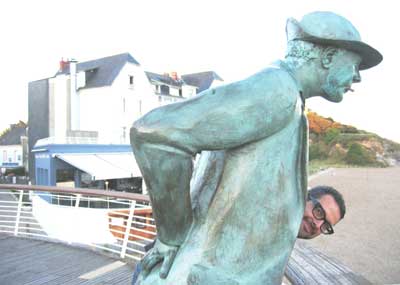
Wim with his long time buddy, Mr. Hulot...
CO-TREASURER: Donald Gabriels, Ghent, Belgium
Donald is an agricultural engineer from Ghent University, Belgium, and is now Emeritus Professor of the Department of Soil Management, Faculty of BioSciences Engineering of Ghent University. He holds a M.Sc. degree in Agronomy (Soil Physics) from Iowa State University, USA, and a Ph.D. in Agricultural Engineering from Ghent University. As a Fulbright Scholar, Donald was a Postdoctoral Fellow at the Agronomy Department of Purdue University, USA. This was at the time when Walter Wischmeier was presenting his Agricultural Handbook 537: ‘Predicting rainfall erosion losses: A Guide to Conservation Planning.’ During that period the initial and final (?) plans were discussed for the construction of the National Soil Erosion Laboratory (NSERL) on the campus of Purdue University. His contacts with the NSERL made it possible for Donald to spend a sabbatical there to research the factors and subprocesses of the combined WEPP/WEPS model.
During the first years of his academic career, Donald devoted his research to soil structure assessment and soil degradation processes. This focused on soil amelioration and soil conditioning for preventing soil structure breakdown and for controlling water erosion processes. He built several laboratory and field rainfall simulators, copied and distributed in laboratories, institutes and experimental fields and projects in different countries all over the world, allowing them to do basic and applied research on factors involved in erosion processes. A few decades ago Donald also co-ordinated the construction of a building for the International Centre for Eremology (ICE) on the campus of Ghent University. The unique feature was the combination of a large wind-tunnel with a rainfall simulator. In 2008, Donald received the UNESCO Chair for Eremology (Studies on Deserts and Desertification). This complemented his teaching and research interests in soil structure, land degradation and desertification, soil physics, substrates, soil conditioning and soil amelioration, soil erosion processes and control, wind erosion, inclined rainfall, and the construction of natural and synthetic grass sports fields.
Donald is also founder and Co-Director of the ‘College on Soil Physics’, at the Abdus Salam International Center for Theoretical Physics (ICTP), Trieste, Italy, and Co-Organizer of the workshop for local farmers and their family members, named COSWAND (Conservation of Soil and Water in Andes Countries) and ELAFIS (Escuela Latino Americana de Física de Suelos). He was the Head of the Department of Soil Management of Ghent University and Co-promotor of ‘Physical Land Resources,’ a joint M.Sc. International Programme of Ghent University and the Free University of Brussels. Donald is the author or co-author of numerous scientific and ‘less academic’ publications in journals, book chapters and proceedings of congresses, symposia and conferences. He has also served as guest professor, guest lecturer and keynote speaker all over the world. The last years of his ‘official’ academic career have been devoted to being a scientific expert for the UNESCO/MAB/UNU/Flanders Trust Fund Project SUMAMAD (SUstainable MAnagement of Marginal Drylands) and the UNESCO/IHP/Flanders Trust Fund Project CAZALAC (Centro para el Agua en Zonas Aridas en America Latina y el Caribe).
Besides and partly parallel with his academic career, Donald has devoted much of his leisure time to sports and coaching. A long time ago, he was an international member of the Belgian team for athletics and netball and served afterwards for several years as a local, regional and national coach. Now Donald is member or chairman of both local and university sports commissions. He organized and was speaker at numerous national and international sport events and edited and wrote articles in sports magazines and books.
Donald is still running an agency for the publication of scientific, art and sport related journals and books and for organizing events, tourist tours and travels and expeditions. He co-ordinated and organized the Bruges-Paris-Dakar and Trans-Mauretania desert expeditions and the relay Madrid-Gent, the latter on the occasion of the 500th year of the birthday in Ghent of Emperor Charles V.
As a result and consequence of his experiences as a long-time treasurer of ISSS (now the IUSS: International Union of Soil Science), Donald was given the ‘task force’ (or ‘forced’ task!) to serve as Co-Treasurer of the ESSC.
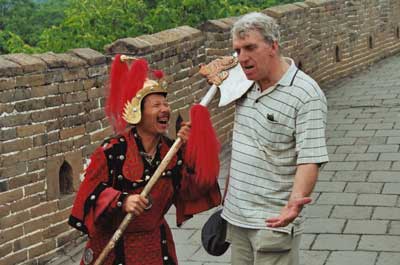
No, you still have to pay your ESSC membership fee!
MEMBERS OF THE ESSC EXECUTIVE COMMITTEE
Saulius Marcinkonis, Vilnius, Lithuania
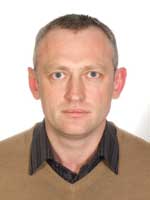 Saulius was born on 19 June 1972 in Vilnius, Lithuania. He has a Ph.D. and is a Senior Researcher in Soil Chemistry at the Department of Soil and Plant Sciences, Voke Branch of the Lithuanian Research Centre for Agriculture and Forestry. Saulius was awarded a Doctor of Biomedical Sciences degree in Agronomy by the Lithuanian Institute of Agriculture in 2000. Saulius was awarded the Lithuanian national ‘Laureate of State Premium for Young Scientist’ twice (in 2002 and 2006). He is registered as an expert evaluator for both EU Framework 7 and national Lithuanian research programmes. Saulius is the author author/co-author of over 30 scientific papers and over 40 conference papers. His research interests include soil chemistry, soil degradation, soil pollution and re-vegetation.
Saulius was born on 19 June 1972 in Vilnius, Lithuania. He has a Ph.D. and is a Senior Researcher in Soil Chemistry at the Department of Soil and Plant Sciences, Voke Branch of the Lithuanian Research Centre for Agriculture and Forestry. Saulius was awarded a Doctor of Biomedical Sciences degree in Agronomy by the Lithuanian Institute of Agriculture in 2000. Saulius was awarded the Lithuanian national ‘Laureate of State Premium for Young Scientist’ twice (in 2002 and 2006). He is registered as an expert evaluator for both EU Framework 7 and national Lithuanian research programmes. Saulius is the author author/co-author of over 30 scientific papers and over 40 conference papers. His research interests include soil chemistry, soil degradation, soil pollution and re-vegetation.
Lillian Øygarden, Ås, (Aas), Norway
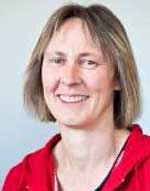 Lillian Øygarden studied Soil Science at the University of Life Sciences, Ås, Norway. At the same University she completed her Doctoral Thesis in 2000 on: ‘Runoff and soil erosion from small agricultural catchments in south-eastern Norway.’ Presently Lillian is Research Manager for Climate Research in Bioforsk (the Norwegian Institute for Agricultural and Environmental Research). Lillian’s main research interests are in soil erosion (snowmelt erosion), monitoring diffuse pollution from agricultural areas and watershed management, agriculture and the Water Framework Directive. She co-ordinates research on climate change and agriculture, which involves research on emissions and effects of greenhouse gases and the adaptation of agricultural production systems. Lillian has long experience in co-ordinating national and international projects and networks. She has been a member of the management committees in COST actions on soil erosion (COST 623 and 634) and a member of the ESSC Council, representing Norway and arranging the International Symposium on Snowmelt Runoff and Related Problems in 2001, in co-operation with ESSC. She represents Norway (from 2010) in the Global Research Alliance for the Reduction of Agricultural Greenhouse Gases (Cropland Research Group). Lillian leads the group on GHG emissions in agricultural peatlands and wetlands.
Lillian Øygarden studied Soil Science at the University of Life Sciences, Ås, Norway. At the same University she completed her Doctoral Thesis in 2000 on: ‘Runoff and soil erosion from small agricultural catchments in south-eastern Norway.’ Presently Lillian is Research Manager for Climate Research in Bioforsk (the Norwegian Institute for Agricultural and Environmental Research). Lillian’s main research interests are in soil erosion (snowmelt erosion), monitoring diffuse pollution from agricultural areas and watershed management, agriculture and the Water Framework Directive. She co-ordinates research on climate change and agriculture, which involves research on emissions and effects of greenhouse gases and the adaptation of agricultural production systems. Lillian has long experience in co-ordinating national and international projects and networks. She has been a member of the management committees in COST actions on soil erosion (COST 623 and 634) and a member of the ESSC Council, representing Norway and arranging the International Symposium on Snowmelt Runoff and Related Problems in 2001, in co-operation with ESSC. She represents Norway (from 2010) in the Global Research Alliance for the Reduction of Agricultural Greenhouse Gases (Cropland Research Group). Lillian leads the group on GHG emissions in agricultural peatlands and wetlands.
Ildefonso Pla Sentis, Lleida, Spain
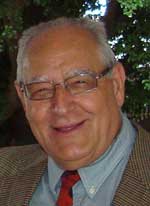 Ildefonso received the degrees of Ingeniero Agrónomo from the Universidad Central de Venezuela, of M.Sc. and Ph.D. in Soil Science from the University of California, Riverside (USA), of Dr. Ing. Agr from the Universitat de Lleida (Spain), and specialities in Soil Salinity (USDA, USA) and Agricultural Drainage (ILRI-University of Wageningen, The Netherlands). Currently he is Emeritus Professor and Co-ordinator of the Doctoral Programme in Soils, Water and Environment of the Universitat de Lleida. Ildefonso has a rich portfolio of roles. He was founder and President of the International Soil Conservation Organization (ISCO), President of the Soil Science Societies of Latin America and Venezuela, President of the Sub-Commission on Soil Conservation and Environment of the International Society of Soil Science (now IUSSS), Member of the International Board of Soil Research and Management (IBSRAM) and FAO International Consultant and Expert on Soil Salinity and Soil and Water Conservation. Ildefonso has many distinctions for academic and research activities around the World. These include being founder and Honorary Member of the World Association of Soil and Water Conservation (WASWAC) and Honorary Member of both the Venezuelan and Colombian Soil Science Societies. He has been Visiting Professor at several Universities in Latin America, the USA and Europe. His research activities have been mostly dedicated to soil and water management and conservation, with experiences in Latin America, the USA, Central Africa and Mediterranean Europe. He has published and edited over 200 papers and books. Ildefonso has supervised 15 Ph.D. theses and 13 M.Sc. theses. Among the main research contributions have been the development and adaptation of simple methods and equipment for evaluating soil physical and hydrological properties in field conditions, the development of process-based simulation models for soil salinity (SALSODIMAR) and for soil water balance and water regime in relation to soil degradation processes (SOMORE). These contributions have been widely used in different parts of the World. Ildefonso is on the Editorial Board and scientific committees of several journals, including ‘Cahiers’ of ORSTOM, ‘Soil Technology,’ ‘Soil & Tillage Research,’ ‘Journal of Soil and Water Conservation,’ ‘International Agrophysics,’ ‘Agronomía Tropical,’ ‘Venesuelos,’ ‘Ciencia del Suelo,’ ‘Suelos Ecuatoriales,’ ‘Land Husbandry’ and the ‘Spanish Journal of Soil Science.’ He is also a referee for many other journals. Ildefonso is presently Co-Director of the International College on Soil Physics (International Centre of Theoretical Physics), Vice-President of WASWAC, Member of the ISCO Board and President of the Soil and Water Conservation Section of the ‘Sociedad Española de la Ciencia del Suelo.’
Ildefonso received the degrees of Ingeniero Agrónomo from the Universidad Central de Venezuela, of M.Sc. and Ph.D. in Soil Science from the University of California, Riverside (USA), of Dr. Ing. Agr from the Universitat de Lleida (Spain), and specialities in Soil Salinity (USDA, USA) and Agricultural Drainage (ILRI-University of Wageningen, The Netherlands). Currently he is Emeritus Professor and Co-ordinator of the Doctoral Programme in Soils, Water and Environment of the Universitat de Lleida. Ildefonso has a rich portfolio of roles. He was founder and President of the International Soil Conservation Organization (ISCO), President of the Soil Science Societies of Latin America and Venezuela, President of the Sub-Commission on Soil Conservation and Environment of the International Society of Soil Science (now IUSSS), Member of the International Board of Soil Research and Management (IBSRAM) and FAO International Consultant and Expert on Soil Salinity and Soil and Water Conservation. Ildefonso has many distinctions for academic and research activities around the World. These include being founder and Honorary Member of the World Association of Soil and Water Conservation (WASWAC) and Honorary Member of both the Venezuelan and Colombian Soil Science Societies. He has been Visiting Professor at several Universities in Latin America, the USA and Europe. His research activities have been mostly dedicated to soil and water management and conservation, with experiences in Latin America, the USA, Central Africa and Mediterranean Europe. He has published and edited over 200 papers and books. Ildefonso has supervised 15 Ph.D. theses and 13 M.Sc. theses. Among the main research contributions have been the development and adaptation of simple methods and equipment for evaluating soil physical and hydrological properties in field conditions, the development of process-based simulation models for soil salinity (SALSODIMAR) and for soil water balance and water regime in relation to soil degradation processes (SOMORE). These contributions have been widely used in different parts of the World. Ildefonso is on the Editorial Board and scientific committees of several journals, including ‘Cahiers’ of ORSTOM, ‘Soil Technology,’ ‘Soil & Tillage Research,’ ‘Journal of Soil and Water Conservation,’ ‘International Agrophysics,’ ‘Agronomía Tropical,’ ‘Venesuelos,’ ‘Ciencia del Suelo,’ ‘Suelos Ecuatoriales,’ ‘Land Husbandry’ and the ‘Spanish Journal of Soil Science.’ He is also a referee for many other journals. Ildefonso is presently Co-Director of the International College on Soil Physics (International Centre of Theoretical Physics), Vice-President of WASWAC, Member of the ISCO Board and President of the Soil and Water Conservation Section of the ‘Sociedad Española de la Ciencia del Suelo.’
Thomas Scholten, Tübingen, Germany
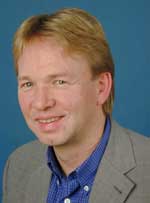 Thomas Johannes Arnold Scholten studied Physical Geography, Geology and Mineralogy at Münster University in Germany (Diploma in Physical Geography and Landscape Ecology, Doctorate in Soil Science). From 1994 to 2002 he was a Post Doctoral Researcher at the Institute of Soil Science and Soil Conservation, Faculty of Agriculture of Giessen University. Thomas was a member of the Collaborative Research Project SFB 299 (Land Use Options for Peripheral Regions). In 2002 he was appointed as Full Professor of Physical Geography and Soil Science at the Faculty of Chemistry and Geosciences of Friedrich-Schiller University of Jena. Since 2005 Thomas has held the Chair of Physical Geography and Soil Science at the Faculty of Science of Tübingen University.
Thomas Johannes Arnold Scholten studied Physical Geography, Geology and Mineralogy at Münster University in Germany (Diploma in Physical Geography and Landscape Ecology, Doctorate in Soil Science). From 1994 to 2002 he was a Post Doctoral Researcher at the Institute of Soil Science and Soil Conservation, Faculty of Agriculture of Giessen University. Thomas was a member of the Collaborative Research Project SFB 299 (Land Use Options for Peripheral Regions). In 2002 he was appointed as Full Professor of Physical Geography and Soil Science at the Faculty of Chemistry and Geosciences of Friedrich-Schiller University of Jena. Since 2005 Thomas has held the Chair of Physical Geography and Soil Science at the Faculty of Science of Tübingen University.
The research interests of Thomas started from studies on acid rain and soil acidification, soil erosion and soil genesis (including regolith weathering, saprolite formation and palaeo-environments). Subsequently, Thomas developed strong interests in soil-landscape modelling using pedometrical methods. Some of the very latest digital soil mapping and data mining approaches were developed in his group and applied to various landscapes. These include the mid-altitude mountain ranges of Central Europe and mountainous regions in China. His recent research focuses on process-based studies of soil erosion and soil carbon dynamics and their inter-relation with biodiversity, climate change and land use on various spatial scales. Thomas has conducted work in several countries, including China, Israel, South Africa, Sudan and Swaziland. In Europe his work is mainly in Germany and Switzerland. Thomas was a member of the Collaborative Research Project SFB 299 (Land Use Options for Peripheral Regions) funded by the German Research Foundation (DFG) from 1994–2006; and the BIOLOG Programme (DIVA project) funded by the German Federal Ministry of Education and Research (BMBF). Currently, he is part of the iSoil FP7 collaborative project funded by the European Union (EU) and the Central Asia Programme of the BMBF. Furthermore, Thomas investigates soil erosion in China in a collaborative project funded by the German Science Foundation (DFG, FOR 891, Steering Group Member) and in the Sino-German Yangtze-Project on land use change, soil erosion and mass movements (BMBF, Scientific Co-ordinator). Thomas was guest editor for Geoderma (2010) and Catena (2004) and currently serves on the Editorial Boards of several journals, including the ‘Journal of Plant Nutrition and Soil Science.’ Since 2004 Thomas has been a member of the Council of the ESSC. In 2007 and 2009, he was elected as Vice-President of the German Soil Science Society (DBG). Additionally, he is highly involved in different expert groups and reviews for several scientific journals and donor organizations.
SHORT BIOGRAPHIES OF ESSC NATIONAL REPRESENTATIVES
Andres Arnalds (National Representative for Iceland), Gunnersholt, Iceland
Andres Arnalds is Assistant Director of the Icelandic Soil Conservation Service. Andres has worked extensively on the development of community based strategies for conservation and restoration of soil and vegetation in Iceland. He facilitated the successful landcare programme ‘Farmers Heal The Land’ as well as other programmes aimed at increasing farmer involvement in caring for the land. Andres has a Ph.D. in rangeland ecology and management from Colorado State University, USA.
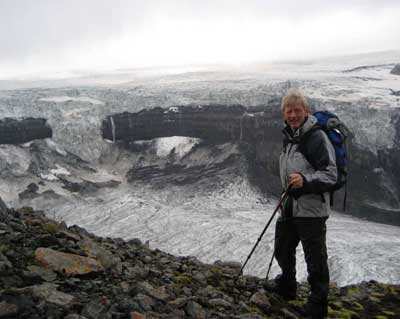
Albert Solé-Benet (National Representative for Spain), Almeria, Spain
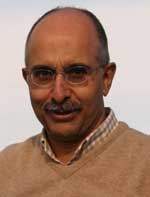 Albert has a degree in Geology from the University of Barcelona (1974), a Diploma in Agronomy for foreign students from the ‘Institut National Agronomique Paris-Grignon’ (1976) and a Ph.D. in Soil Science from the University Paris VI, France (1979). His Ph.D. thesis was entitled ‘Mineral clogging in agricultural drainage systems; an experimental approach based on soil micromorphology to study particle translocation in soils.’ Albert spent several years as a Post-doctoral Fellow in several countries. In 1985 Albert joined CSIC (National Research Council of Spain), first as a Post-doctoral Fellow and later as a Scientist. His research interests have always been related to soil, as an essential part of both agroecosystems and sedimentary records. Specifically, Albert has investigated: the assessment of palaeosols of geochronological interest; the assessment and remediation of soil degradation; soil erosion by water; soil restoration; soil structure and micro-structure; surface crusting and roughness. As the main research tools for investigating soil structure and porosity, Albert has used soil micromorphology and image analysis of thin sections and resin-impregnated soil blocks. For soil erosion determination and related parameters, he has used instrumented plots and small catchments, rainfall simulators and a terrestrial laser scanner.
Albert has a degree in Geology from the University of Barcelona (1974), a Diploma in Agronomy for foreign students from the ‘Institut National Agronomique Paris-Grignon’ (1976) and a Ph.D. in Soil Science from the University Paris VI, France (1979). His Ph.D. thesis was entitled ‘Mineral clogging in agricultural drainage systems; an experimental approach based on soil micromorphology to study particle translocation in soils.’ Albert spent several years as a Post-doctoral Fellow in several countries. In 1985 Albert joined CSIC (National Research Council of Spain), first as a Post-doctoral Fellow and later as a Scientist. His research interests have always been related to soil, as an essential part of both agroecosystems and sedimentary records. Specifically, Albert has investigated: the assessment of palaeosols of geochronological interest; the assessment and remediation of soil degradation; soil erosion by water; soil restoration; soil structure and micro-structure; surface crusting and roughness. As the main research tools for investigating soil structure and porosity, Albert has used soil micromorphology and image analysis of thin sections and resin-impregnated soil blocks. For soil erosion determination and related parameters, he has used instrumented plots and small catchments, rainfall simulators and a terrestrial laser scanner.
Current research projects are investigating: a) experimental soil restoration in limestone quarries; b) effects of physical and biological soil crusts on the water balance and soil erosion in semi-arid environments; and c) desertification mitigation and land remediation. Albert is the responsible scientist at two experimental field sites in south-east Spain belonging to the RESEL (Spanish Network of Erosion and Desertification monitoring). He is also a referee for many scientific journals. He has authored or co-authored over 100 papers in peer reviewed journals and scientific books.
For more information, please visit: http://www.eeza.csic.es/eeza/personales/albert.aspx
Thought for the month
“Planet Earth has no tourists”
(Richard Templar, 2006).
©2014 European Society for Soil Conservation. The owner of the content of this website is the European Society
for Soil Conservation (ESSC) and can only be used with the consent of the owner of this website or members of the ESSC.
